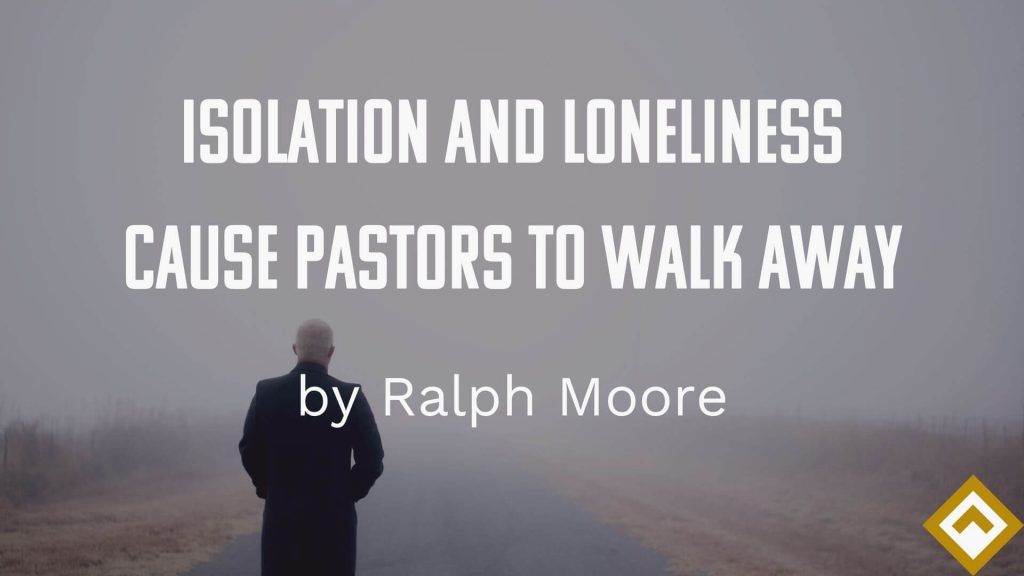Elvis Presley “broke down” when his young co-star suddenly died before their movie was released.
Author: Admin
Isolation and Loneliness Cause Pastors to Walk Away

I thought financial issues would be the first cause for pastors leaving the ministry.
But I was wrong! Isolation and loneliness account for the most significant number of pastors quitting their jobs—across all church sizes and flavors.
And we’re not alone with our feelings. According to his second letter to Timothy, the Apostle Paul was left in isolation. While decrying isolation from prison, he describes those who have left and then begs Timothy to come to him. And he warns Timothy about others deserting him, too—no one is immune.
In this context, Paul’s message to Timothy is perseverance and faithfulness despite abandonment or separation from others. He encourages Timothy to continue in his ministry and to come to him quickly, reflecting his need for companionship and his desire to pass on his final instructions and encouragement to his spiritual son.
So, how do we stand against feelings of isolation and loneliness? First, we identify and unpack the pain points and then look at antidotes.
Before identifying the sore spots, let’s admit that we are in a spiritual battle, and even reading this short missive is a form of spiritual warfare. The enemy would drive you to suicide if he could. He will undoubtedly wrap you in a cocoon of isolation, resulting in depression and anxiety, if nothing else. The weapons are as spiritual as the battle.
Simply remembering the miracles (or weird coincidences) that accompanied your call should quench a few fiery darts with a memory that God does have plans to prosper you and do you no harm. So, let’s examine the three most common combat zones.
Elevation and Isolation
Knowledge of biblical references and languages, a microphone strapped to the side of your face and standing on a physical platform all generate barriers between you and your congregation. Each makes it more challenging to create legitimate, caring friendships.
Worse yet, we have hundreds, sometimes thousands of acquaintances as pastors. However, these relationships are primarily shallow due to their sheer numbers. Again, those who would benefit you most may stand at a distance, not wanting to bother someone so busy.
One antidote to this is to tell on yourself when you curse at someone in traffic. Vulnerability breeds relationships. Tell the story, then drink coffee with whoever responds to it as you greet people after the meeting.
Estrangement In Families
I have a pastor friend in Japan who lost his son because my friend never really learned to speak the language, and young Japanese males resist learning English—enter the teenage years, and they had a problem.
But the kicker for most of us is simple busyness with the church. I know two men whose wives divorced them for what they deemed bigamy—they were married to the church, not to them.
Like detectives on a police force, we’re constantly running after problems. The solution here is a relatively rigid schedule. If someone is dying, that is a crisis; if they died, the crisis is past, and your schedule comes into play. If it can wait till working hours, let it!
Poorly Defined Buffer Zones
This one relates to managing your schedule but is different enough to mention here.
I was once frustrated by people looking over my shoulder at my calendar in the days of paper and ink. They’d see a blank spot and press for my time—even if it was my day off.
I began marking big red Xs across Tuesday evenings as that was the night dedicated to our small children for Fonzie and Lavern & Shirley on TV. When a lady showed up for counsel on a Tuesday, we invited her into the process. Later, when she badmouthed us for making her wait while we “watched silly TV shows with our kids,” I told her story in church. People began learning my need for private time (including coffee with tight friends), and I started marking more red Xs on my calendar.
Summarizing Our Thinking
We need to climb off the pedestal, even something as simple as occasionally preaching from the floor in front of the podium. We should protect our family time and our children—if someone called one of my kids a “PK,” they got an earful from me in front of the affected child. Finally, we can and should set severe buffer zones around our personal time and space. It is in those spaces that you can find the antidote to isolation leading to chronic loneliness and depression.
I believe the sometimes misquoted prophecy in Jeremiah 29—God has plans for us and means no harm. The spiritual warfare passage in Ephesians 6 begins with a warning in chapter 5 to submit to one another in love, then moves on to family issues. The entire stretch offers an antidote to the loneliness that often sidelines dedicated servants.
Ralph Moore is the Founding Pastor of three churches which grew into the Hope Chapel ‘movement’ now numbering more than 2,300 churches, worldwide. These are the offspring of the 70+ congregations launched from Ralph’s hands-on disciplemaking efforts.
He travels the globe, teaching church multiplication to pastors in startup movements. He’s authored several books, including Let Go Of the Ring: The Hope Chapel Story, Making Disciples, How to Multiply Your Church, Starting a New Church, and Defeating Anxiety.
The post Isolation and Loneliness Cause Pastors to Walk Away appeared first on Newbreed Training.









